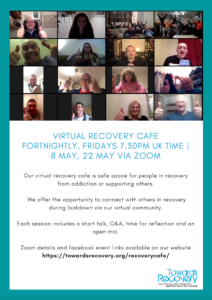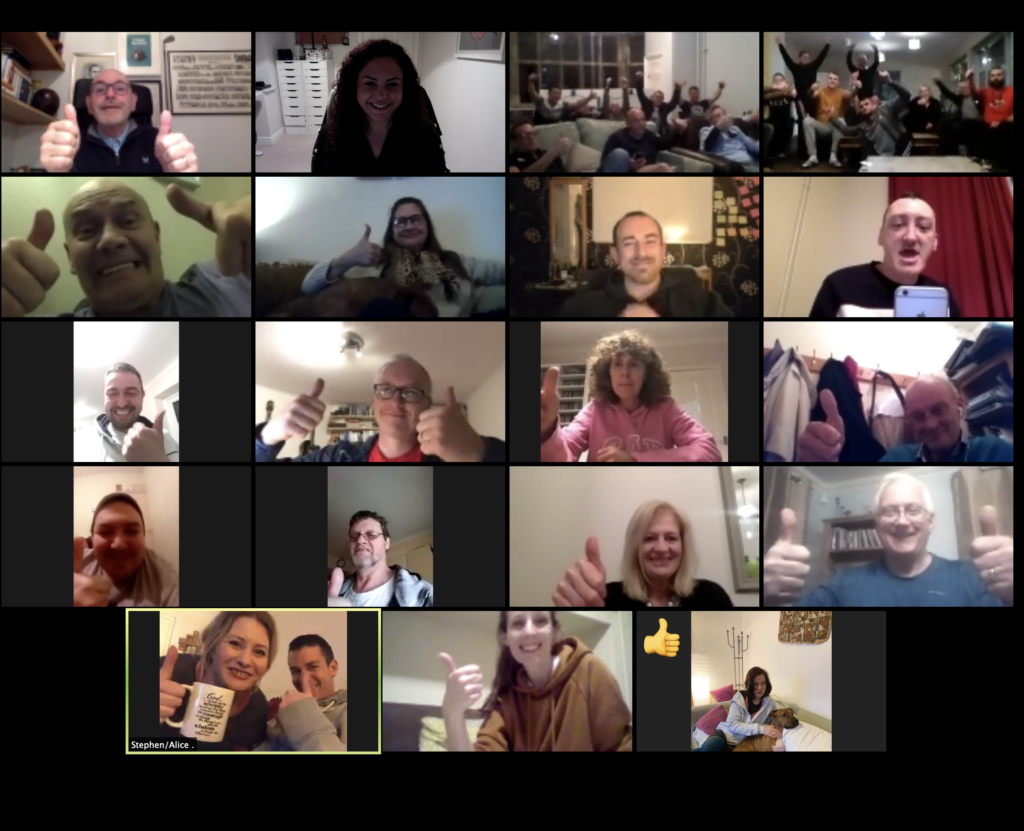Letters from Lockdown
Huseyin Djemil, Founder – Towards Recovery
https://www.linkedin.com/pulse/letters-from-lockdown-huseyin-djemil-fcmi-fdap
I love quotes from movies, and I’m sure we all have our own favourites, like when Al Pacino says, “Just when I thought I was out, they pull me back in” (The Godfather 3), I even like the Soprano’s version of that quote (series 1 episode 2, at the beginning, before the title roll starts).
There was a quote in the movie, Spy Game (2001) that I am particularly fond of and want to use at the top of this first edition of Letters from Lockdown. It’s the scene where Robert Redford’s character (Nathan Muir) is speaking to his secretary, Gladys (played by the wonderful Marianne Jean-Baptiste). It’s his last day at the CIA and he is trying to get his protégé (Brad Pitt) freed from a Chinese prison and he is working hard to make things happen, and like any good spy, his plan has several layers that he is carefully arranging when Gladys says…
Gladys Jennip: Feeling a little paranoid on our last day?
Nathan Muir: When did Noah build the ark, Gladys? Before the rain.
I know it’s a bit of a leap from there (a film quote) to where we are now (locked down and isolating) but in the substance use and Recovery field where I work, there are many organizations that could have done with “building the Ark before the rain”, rather than waiting for the rain to come and realizing the devastating effect it would have on their services and more importantly, the vulnerable people they have been commissioned to support
In times of trouble we either lean into our relationships and into our community, our tribe, or whatever you call the group you identify with, or we realize we have become isolated and have very few options and have to quickly scramble for some sort of connection that can help us in our time of need
We need to adapt to survive, and in Recovery terms connection is the key.
Sadly, many of the big charities and mainstream drug and alcohol treatment providers have struggled and are now trying to build the Ark “in the rain”. Recently I was a guest on a Zoom meeting (Zoom, our new best friend) hosted by an Isle of Man charity called Quing and we had a guy from Ireland, one in Glasgow, someone in Rotterdam, and me (Oxfordshire) and there were listeners to the conversation from many other places. One of the participants was a community outreach worker and before coronavirus he was one of 2 staff that others in his work place never really valued and saw as expendable. Post coronavirus, he had become part of the senior management team as the CEO was keen to support the only staff with solid community links and these community workers were basically coordinating everything and keeping the ‘show on the road’. I’m sure this is a scenario that is being played out in many many settings across the UK. The last have become first and many of those roles considered important pre COVID-19 show little or no value now.
As an organization if you had a community of people you were in touch with, it was a fairly quick process to go from face-to-face (in a physical setting) to face-to-face (in a virtual setting) and in many cases people have reported (certainly to us) that while they are currently physically isolated, they still feel connected, with us, and through us, to others.
However, instead of connection, many of the big charities and substance use treatment providers are reduced to a transactional service, represented solely at this time by a prescription and fortnightly pickup of that ‘script’. This is often the worst of all worlds e.g. a large amount of Methadone (between 0.5 to 1 litre to last 2 weeks on fairly typical doses) and being isolated from normal support structures that are often things like group-work, drop-ins or social connections made or reinforced at treatment services which are now largely shut
We have also seen alcohol sales and home consumption of alcohol rising, fueling domestic violence and other harmful behaviours, vulnerable children often trapped at home, and we are seeing those isolated vulnerable people also being relentlessly bombarded by invasive gambling adverts
There have been some positives too and its been great to see communities pull together and we’ve seen that AA and NA have quickly moved on-line and SMART Recovery , who already had an online presence has adapted too
I know of one rehab (Yeldall Manor ) that despite funding drying up almost completely because local authorities have stopped commissioning residential rehab places (they are now relying mainly on their own Good Samaritan Bursary Fund) have found ways to stay open, take referrals, and admit new residents. They have set up an isolation unit (for anyone with signs and symptoms of COVID-19), and put in place staff teams to support their residents. They even have a skeleton staff team living in nearby temporary accommodation so that they are accessible as required
Pushing Change CIO a peer led recovery community in Portsmouth has solid connections with its members and they are still open and supporting those members and through the membership they are linking with the vulnerable, the homeless and those that mainstream services always classify as hard to reach. They have adapted the delivery mechanisms using technology and have even developed a few new services. They are busy and having to get devices out to members and support people with benefits appeals as well as linking them to other community resources like food banks and temporary housing
Nacoa UK , a Bristol based – national charity, continues to provide a helpline to Children of Alcohol dependent parents (COAs). They have adapted their service by organizing a skeleton staff team and focusing on core services but they are still there, still contending on behalf of those that need them, many of whom are young and vulnerable. Nacoa also have one of the most comprehensive COVID-19 support resource packs that I know of, anywhere and its freely accessible on their website. They also have deep roots in social media and a large, active and loyal following that it is able to mobilize to support each other
I am sure there are many more examples of amazing organizations out there; these are just the ones I am in touch with, who I know have adapted, are currently surviving, and whatever the ‘landscape’ when this is over, they are planning to emerge stronger and hopefully thrive well into the future.
Towards Recovery
Providing addiction recovery support by helping people initiate and sustain recovery and integrate into the community.
Find out more about the Towards Recovery Virtual Cafe
Next sessions: Friday 8 May and 22nd May, 7.30pm – 8.30pm UK time



